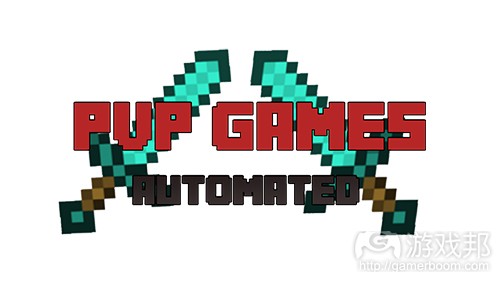每日观察:关注苹果App Store拒绝应用的主要原因(9.3)
1)据venturebeat报道,苹果日前透露了App Store拒绝应用的主要原因,其中最普遍的一点是却并非审查制度,而是提交信息不充分。
8月份最后一周约有14%的应用被苹果拒绝,原因是这些应用提供的信息不足。
第二个主要原因占比8%,即这些应用含有漏洞或经常崩溃;第三个原因则相当模糊,约6%的应用没有遵从苹果开发者计划授权协议。
苹果建议开发者在提交应用之前一定要确保产品已经在设备上进行测试,并且修复了所有漏洞。苹果要求应用中的所有链接都必须是有效的,并且要包含一个与隐私政策相关的链接(儿童应用尤其如此)以及客服支持链接。这些应用不能使用占位符图片,所有描述必须准确,不具有误导性。用户界面必须清晰整洁,使用广告者必须以合理方式呈现,并且这些应用还要具有“吸引力和实用性”,开发者不可以重复提交已经被拒绝的相似应用。
2)据gamasutra报道,Rovio创始人Mikael Hed日前已从公司CEO职位下台,今后将负责监管公司动画与电影运营业务。
Hed于2003年同Niklas Hed联合创办Rovio(当时名为Relude),该公司在2009年因《愤怒的小鸟》而赢得全球声誉。
Hed虽然不再担任CEO,但仍将在公司发挥积极作用,已被提名为公司董事,将继续担任Rovio Animation Studios主席。
Pekka Rantala将于2015年起接替Hed担任CEO,他之前曾是诺基亚元老。
3)据gamasutra报道,在Konami就职长达17年的元老人物Dave Cox日前离职,以便“挖掘新机遇”。
Cox于1997年加入该公司,其接手的首个项目就是PS平台的《恶魔城之月下夜想曲》,之后曾参与项目包括《寂静岭》、《合金装备》和《实况足球》。
4)据venturebeat报道,从上周开始,所有Facebook游戏在韩国均停止运行。从8月29号开始,《Candy Crush Saga》、《FarmVille》及其他所有Facebook游戏都被韩国所禁止,原因是该国正在实施游戏行业保护法案(于2013年确立的按年龄划分的分级系统)。
游戏开发者和发行商必须付费向韩国分级委员会提交自己的产品,由9人组成的委员会(包括教授、律师和非政府组织代表)进行审查,他们则将在15天后确认该游戏是否适合4种年龄分类中的一种:所有年龄,12岁以上,15岁以上,仅限成人。
5)据gamesbrief报道,最近有数据显示,PvP模式的游戏拥有极高的玩家粘性,并且玩家融入这种模式后更可能为游戏付费。
单人模式游戏的终身ARPPU约5-10美元,PvP游戏则是20-350美元。其中以RPG题材的PvP表现最为显著,多人模式的RPG游戏ARPU比单人模式RPG游戏多5倍,比非RPG的单人模式游戏多25倍。
单人模式RPG的ARPU为0.1美元,多人模式RPG为0.51美元;单人模式非RPG的ARPU为0.02美元,多人模式非RPG为0.05美元。
除此之外,异步PvP的ARPU也比同步PvP模式的ARPU多2.5倍,如果游戏中同时植入同步和异步PvP,不但可以保持高水平的ARPU,还可以扩大铁杆玩家和付费用户的比例。(本文为游戏邦/gamerboom.com编译,拒绝任何不保留版权的转载,如需转载请联系:游戏邦)
1)Here are the top 10 reasons Apple rejects apps
Dean Takahashi
In the name of transparency, Apple has revealed the top reasons why it rejects apps from its App Store.
The most common reason Apple blocks apps isn’t censorship, as some folks might believe. About 14 percent of apps rejected during the seven-day period ending Aug. 28 were rejected because more information was needed.
The second most popular reason, coming in at 8 percent, is that the apps have bugs or cause crashes. The third one is pretty vague: About 6 percent of apps are rejected because they do not comply with the terms in the Developer Program License Agreement.
Mobile developer or publisher? Learn how the most successful developers get better users for less money, with our VB Insight Report.
Apple’s decisions are often shrouded in mystery, but the post shows the company is making efforts to communicate better to the millions of developers who are submitting apps by the thousands.
Still, there are experts who specialize in helping people understand this kind of information. Michael Ehrenberg, a former Apple marketing manager, will give a talk at our upcoming GamesBeat University section of GamesBeat 2014 on what you can do to improve the chances of getting your app featured in the Apple App Store.
In its post, Apple said, “You should submit your app for review only when it is complete and ready to be published. Make sure to thoroughly test your app on devices and fix all bugs before submitting.”
It noted that all links in an app must be functional. The app must include a link to a privacy policy (especially for kids’ titles), as well as a link for user support. Apps can’t have placeholder images. Descriptions have to be accurate, and your app can’t be misleading. The user interface has to be clean. The app has to display ads properly if it uses them, and the app should be “engaging and useful.” You’re also not allowed to resubmit similar apps that have already been rejected.(source:venturebeat)
2) Rovio CEO Mikael Hed stepping down after 5 years
By Mike Rose
After more than five years at the helm, Rovio founder Mikael Hed is stepping down from his CEO position, and will instead oversee animation and movie operations at the company.
Hed co-founded Rovio back in 2003 (then known as Relude) with Niklas Hed, and the company rose to worldwide fame following the release of Angry Birds in 2009.
Now the CEO says that he’s moving aside, although he will apparently still “play an active role” at the company. He’s been nominated for a board of directors position, and will continue on as chairman of Rovio Animation Studios.
Pekka Rantala will replace Hed on January 1, 2015. Rantala was previous a Nokia veteran, having held various executive positions at the company from the mid-90s onwards.
Rantala and Hed will be working together until then to assure that the transition is as smooth as possible. (source:gamasutra)
3)Konami veteran Dave Cox leaves company after 17 years
By Mike Rose
Newsbrief: Dave Cox, a Konami veteran of 17 years, has decided to leave the company to “explore new opportunities.”
Cox first joined the publisher and developer back in 1997, where his first project was leading development on Castlevania: Symphony of the Night for PlayStation.
Since then he has had a hand in big franchises like Silent Hill, Metal Gear Solid and Pro Evolution Soccer. Cox announced his departure via Twitter, stating, “I want to thank Konami for the opportunity and all those people who supported me and the team on our journey.”
The industry veteran says he has something in the pipeline that he plans to announced after a break.(source:gamasutra)
4)South Korea blocks all Facebook games as part of a government crackdown
Jeffrey Grubb
Last week, every Facebook game stopped working in South Korea. And they’re not coming back until the country’s government can apply its rating system.
On Aug. 29, Candy Crush Saga, FarmVille, and all other games on Facebook ceased functioning in South Korea. The nation blocked them as part of the enforcement of its Game Industry Promotion Act, which established a legally binding age-appropriateness rating system in December 2013 — although the country never went through steps of applying those guidelines on Facebook games until now. That legislation and the recent enforcement is part of a wider effort to implement control over social-casino games, but the country is also taking the opportunity to ensure everything on Facebook complies with its regulations.
These games, which players can longer access, make millions of dollars every year from microtransactions. With regulators cracking down, this is potentially costing publishers like King a lot of money.
We’ve reached out to South Korea’s regulators for more, and we’ll update this post with any new information.
If you’re wondering why South Korea suddenly pulled the plug on every Facebook game, it is likely attributable to the country’s stance on gambling. Casino gambling is highly controlled in South Korea, and the age-rating system, overseen by the Game Rating and Administrative Committee, gives the country’s officials a way to look at and approve certain casino games for specific age ranges before they even hit the market. Social-casino experiences on Facebook and mobile emulate real casinos where players can pay to buy more chips or other kinds of virtual currencies, but the games don’t provide a way for players to win actual money.
Under the new guidelines, developers and publishers will have the chance to get their products back up on Facebook if they submit the software to the ratings board. After 15 days, a nine-person panel (comprised of professors, attorneys, and non-government organization representatives) will determine if a game fits into one of the four following categories: All, 12+, 15+, or Adult Only. To take part in the process, developers and publishers do have to pay a fee.
While developers wait around for regulators, they are losing out on revenue. The country is one of the biggest gaming markets in the world. While smartphone and PC gaming is dominant in South Korea, social games can still generate significant cash in that territory.(source:venturebeat)
5)PvP could increase game revenue by 510%
By David Xicota
The key to success and drawing revenue for any game is to be fun to play. Shocking huh? I’m sure you had already figured that out on your own.
What you might not be entirely aware of is the importance engagement has over game revenue, and a simple way to improve it.
A recent study reveals compelling data that shows that having a player vs player mode is a really powerful engagement tactic.
Nothing beats human interaction when it comes to keep the players coming back for more. And more gameplay equals more chances of cashing in.
Let’s break down the numbers of the study.
The more the merrier
When players like the game and are engaged, they are closer to paying because they find value in doing so. We’re shown that ARPU quadruples when players hit a certain threshold of play sessions.
ARPU in the 10-50 play session range raises $0.83 where 51-100 does $3.79.
It seems clear that the first step to stardom is to engage players and have them wanting more.
Keep players’ hands full! Multiple game modes offers more opportunities to appeal to the gaming experience each player seeks. So not limiting to a few play modes seems like a good idea. These are just examples of play modes on the top of my mind:
Astral Collecting and Combining
PvP doubles your money
The study shows a clear trend in game revenues. Players are more likely to spend money if they can engage in player vs player mode. Whereas life-time ARPPU for single-player games cluster around $5-$10, PvP games range $20-$350.
At the very least, developing a multiplayer game will double your revenue.
PvP really takes the spotlight in the RPG genre. Considering an engaged player base, +50 play sessions, multiplayer RPGs have x5 ARPU than single-player RPG games and x25 ARPU than single-player non RPG games.
ARPU stats
Single-player Multiplayer
RPG $0.10 $0.51
Non-RPG $0.02 $0.05
Player vs player boosts revenue 250% in non RPGs and to 510% in RPGs.
Design powers revenue
When designing your PvP mode there are some important differences you should bear in mind.
Asynchronous PvP shows x2.5 ARPU than synchronous play. Also note that when you have both synchronous and asynchronous PvP, not only ARPU stays high but you broaden the percentage of engaged players and top the percentage of buyers. Again, the more options you give players, the better it is for you too.
Asynchronous is better than synchronous because it allows players to play at their own pace and convenience.
Multiplayer games have x5 to x13 ARPU versus single-player games.
The bottom line is this: revenue goes up when you give players more freedom to enjoy the game.(source:gamesbrief)











































